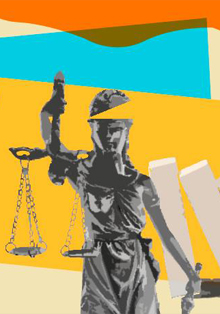Miguel Ángel Medina
Deputy Director of the ‘Antoni de Montserrat’ Chair of World Studies at the Universitat Abat Oliba CEU
Those of us who like to play chess know that this game is a game of two. A board with an infinite number of pieces, moves, strategies and nooks and crannies, with the sole aim of finishing off the opponent with a final master move, checkmate. The game is complicated by a number of factors, including if a game drags on, if one of the two players does not respect the rules of the game, or if there are too many spectators. Russia has been playing its chess game on former Soviet territory for the past three decades and, for various reasons, this time it was Ukraine’s turn to take on the Russian bear. But Ukraine is Ukraine, and in this game the West has not been equidistant, if not dismissive, of Russian foreign policy and its hybrid war strategy. We cannot thread together Russian accessions and discourse without recalling the symbolic (remember the romanticism of Ukraine as the cradle of the Russian homeland) and geostrategic (access to the warm waters of the Black Sea) value of this huge country for Moscow.
A Russian military invasion of Ukrainian territory or an open confrontation between the two countries is hardly foreseeable – if not, the 100,000 Russian troops deployed on Ukrainian territory would be a major threat. But we can bet that Moscow will not cease in its strategy of not letting Ukraine breathe, of preventing its rapprochement with Brussels (both Evere and Justus Lipsius) and Washington, of making it have to defend its queen and king with all its pawns and not be able to think.
What can we highlight from this chess game? First, Putin has taken advantage of the weakness of the Western powers in recent months (Biden’s lack of definition and lukewarm foreign policy, Brexit, debates and internal division in the EU, among others) which, combined with the crisis of liberal multilateralism and China’s fist on the table, has rolled out the red carpet for Russia to enter the Donbas and Crimea like Putin in his own house. Secondly, at this stage of the game it is obvious that Russia cares little about domestic contestation, democratic practices in its international adventure or orthodox solidarity. And this is a strategic advantage vis-à-vis Washington, Brussels, Paris and Berlin. Third, and as a corollary to the above, the Eurasian giant has suffered from the elephant in the china shop syndrome since the end of the USSR, but for the past few years it has felt very comfortable, and unopposed, in a trans-regional context that is as volatile as it is strategically essential. In today’s unpredictable international context, full of grey zones and spheres of influence, Putin has played the card of the return of the tsar, and it has worked out well.
What steps could be taken to de-escalate tensions? The formula of more diplomacy and more mediation is not going to work, as that pawn will advance one square in the winter of 2022 but the spring airs or the summer breeze will push it back three. Only economic sanctions with a face and eyes would make the Kremlin change its stance. Analysts point to the cancellation of SWIFT orders, a boycott of Russian imports of Western goods, diversification of European energy demand, the de-dollarisation of large-scale financial operations and the constant devaluation of the rouble on an international scale.
Only time will tell whether in a few months’ time we will look back on this year’s winter as just another move in the multi-player chess game unfolding on Ukrainian territory or whether we will be sending mediators into an armed conflict. Either way, Putin will continue with his hybrid strategy to wear down the West, control part of the ex-Soviet space, keep Ukraine breathing and gain huge doses of popularity. However, let us note a dose of optimism: Washington and Brussels disagree on how to handle this dossier and how to respond to Putin and his chess pieces. This is good for the international system.
© All rights reserved






